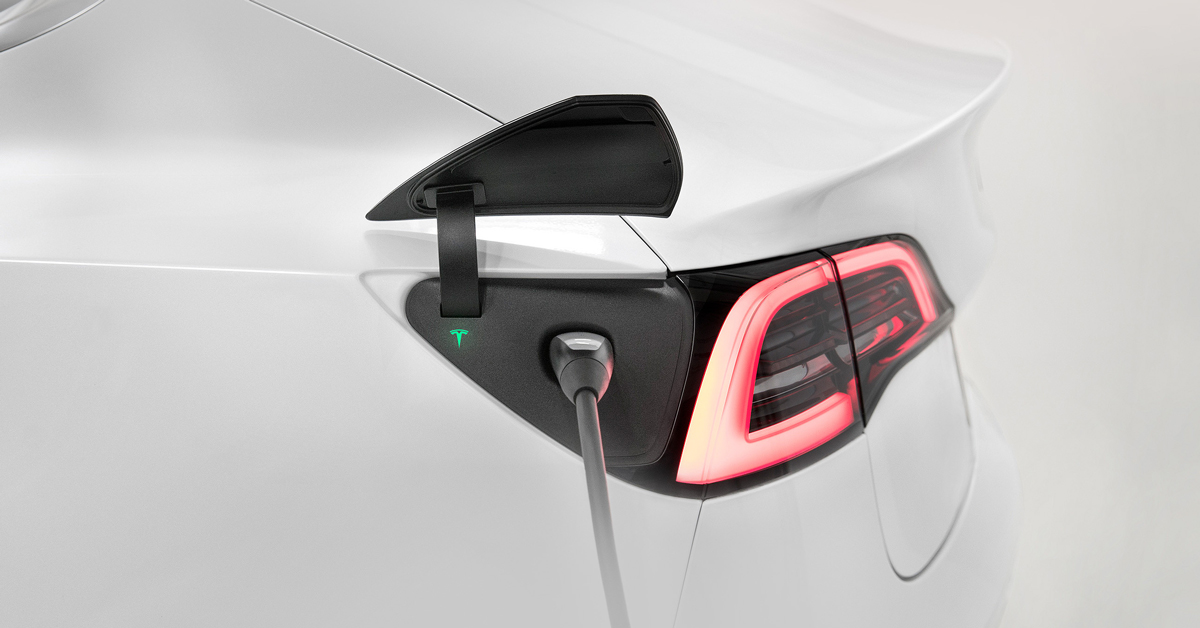
Many drivers have wondered what amount of electricity an electric vehicle uses. Even though the mileage of a plug in vehicle can vary from vehicle to vehicle the electric car's fuel efficiency is almost identical to that of a regular gas-powered vehicle. A battery-powered vehicle is typically less expensive than a conventional vehicle. Maintenance costs are also lower.
You will need to determine the kWh rate for your region in order to calculate how much electric power your vehicle consumes. The cost for electricity in most regions of the United States varies greatly from one area to another. Depending on which state you are in, the cost may range from less than one cent to more than one dollar per kilowatthour. Check with your local power company for discounts on plug-in cars to make the most out of your electricity bill. Using solar panels on your home can help you to save on energy bills.

The Department of Energy's Alternative Fuels Data Center has a list of the most popular models and battery sizes. It also offers tips on finding the right charging station for you. A calculator is also available on the site that will help you determine how much electricity your electric vehicle gets from the grid. A cool tool on the site is the Alternative Fuels Data Center Locator Tool. This shows you where your vehicle can plug in for free.
Modern electric vehicles have one thing that is more impressive than the others: they can be powered by renewable energy. This means that you don’t have to worry as much about tailpipe emissions as gasoline-powered cars. A second interesting fact is that electricity can be used in place of gasoline. This makes it less likely to cause an accident. There are many incentives available for purchasing an electric vehicle, including tax credits as well as other incentives that may vary by state. A $7,500 federal tax credit is available for eligible electric cars.
The cost of electricity per mile is not a difficult calculation to figure out, but there are several other factors to consider. An electric vehicle costs between 30-60 dollars per monthly depending on how frequently it is used, and where you live. The average household is estimated to consume about 20 to 100 kWh of electricity each day. This estimate may not be realistic depending on the lifestyle of your family and other factors.

Your home is the best place to charge your electric vehicle. A home charge for a 24 kWh battery costs only a couple dollars. A 50-kWh battery will cost about five. However, this is not true at public charging points. You'll also have to pay a fee to park your car at a charging station, which could be anywhere from two to seven dollars. Luckily, a number of utilities offer discounts for their customers who have plug-in vehicles.
FAQ
Do I need to have a degree to work as an automotive mechanic? What about part-time study?
While a degree is not required, it does help. Employers will prefer candidates who have completed a degree. It shows you are dedicated and have worked hard to achieve your goals.
But, this doesn't mean you have to stop working while studying. Some universities let students complete their coursework in the summer and then continue their studies during the school year. Others let students take classes part-time throughout the year.
What type of job is there for a car mechanic?
Three main areas of employment are available for car mechanics:
-
Automotive repair shops
-
Dealerships
-
Independent garages
Automotive repair shops
This is where most people consider becoming a mechanic. In fact, it's probably the easiest way to get started. You have two options: work in an existing shop or open your own.
You will need to join a union if you want to work in a shop. Once accepted into the union you will be trained by the union.
You'll be ready for work once you have completed the training.
Registering with the government is required if you intend to open a garage. After you register, you will be required to meet specific standards.
After you have registered, you will be issued a license to operate your garage.
Your license will permit you to sell spares parts and perform minor repairs. It will not permit you to fix major engine issues.
As well as selling spare parts you will need to offer advice and direction to customers.
Dealership jobs
Most dealerships only employ mechanics who have a specific skill set. They might specialize in one area, such as brakes and tires.
However, dealerships may also employ general mechanics who are able to handle all aspects related to car repairs.
Some positions require that applicants complete training before they can be allowed to work. This allows employers to select the most qualified candidates for their roles.
Some dealerships recruit students right out of school. These graduates already know the basics of mechanical engineering and therefore have no problem learning about cars.
Independent garages
Independent garages don’t have to be associated with any particular dealer. Instead, they focus on high-quality customer service.
Independent garages can pay higher wages because they aren't associated with any company. This means that these jobs are usually more lucrative than those at dealerships.
Independent garages can be just as good places to work, but this does not mean they are better. Many business owners prefer to own their businesses and not delegate the responsibility to others.
So you may find yourself working long hours without having any say over what happens during the day.
Also, expect to make lower wages than if your job was at a dealership.
The good news is that you can easily switch between different kinds of jobs. To work at a dealership you will need to contact your employer to see if he is open to the idea of hiring you.
You could also apply directly to an owner of a garage if that's what you want.
It's not always easy to find a job. You can earn more depending on many other factors.
This could include the type of vehicle that you are working on and whether or not you charge an additional for labor.
How can I prepare for a apprenticeship as a mechanic?
It is essential to understand what you are getting into. You must understand the workings of cars. This will help you to plan your first day in the garage.
You should also know how to fix common problems such as tires or broken lights.
This will teach you how to diagnose problems and fix them yourself.
You'll also need to know how different parts fit together to put them back together again.
Finally, it is important to know how tools can be used safely and efficiently.
All these things will help you to become a competent mechanic.
How long does an automotive course take?
An automotive course lasts for three years.
The first year is dedicated to theory and learning about cars. The second year will be spent in practical training. Here you will learn how fix engines, drive and other mechanic jobs. The final year is spent doing a placement at a local garage, which gives you experience in fixing real-world problems.
Is being an auto mechanic a promising career choice?
Automotive is an exciting industry filled with opportunities for people who are committed to excellence. You can only succeed in this field if you work hard and learn from others.
Your job will require you to be a good communicator as you'll be talking to customers and other employees. It is important that you are willing to travel, work long hours and be able to commute.
Consider taking classes at local universities or community colleges if your goal is to pursue a career in the automotive industry. Many schools have programs that are specifically tailored for students who are interested in automotive sales, repair, and customer service.
You should choose to study mechanical engineering if you want to get a degree. You can get your bachelor's degree in as little as four years.
Many employers will hire graduates straight out from school. It's a smart idea to begin looking for work while you have the opportunity to study part-time.
After you've finished your education, it's likely that you'll need to go through some training before you can be hired as an auto technician.
You will need to pass the Automotive Service Excellence certification exam. This test covers topics including engine maintenance, brakes, steering systems, suspension, and more.
Once you pass the ASE test, your license can be applied for by the National Institute for Automotive Service Excellence.
A license permits you to repair private vehicles. You'll be paid based upon the number of services provided.
Not all states require licensing. However, licensing is required for anyone who plans to work outside the home state.
Some states won't issue licenses until you have completed a certain amount training. If this applies to you, then you may need to find another option.
What does it take for a mechanic to be a good one?
You need to have years of experience and practice before you can become a master mechanic. It is best to learn how to fix cars under the supervision and guidance of a professional mechanic.
You will be required to spend time at a car garage learning as much as you can about cars. You'll need to study mechanical engineering books on mechanics and car design.
And you'll also need to attend auto school.
It is important to get started early. To learn about automotive technology, don't wait to be older. Do you want to be a mechanic? Get started today!
Is it worthwhile to become a mechanic?
The answer to that question depends on what your life purpose is. If you're looking for money, then it's true. But, if there are meaning and purpose in your life, then it's not.
If you don’t have any mechanical skills, it’s pointless to get into it. It will just waste your time. It's not going to make you rich. It will not make you famous. And it's unlikely to change your life.
This would require you to spend many years learning how to properly do everything. It would be expensive to have your car fixed by someone else. Most people avoid doing this. They find something more worthwhile.
Summarising, if your goal is to make lots of money, go for it. You can't live a meaningful existence if your goal is to make a living in the mechanic's business.
Statistics
- According to the BLS, total auto technician employment is expected to exceed 705,000 by 2030. (uti.edu)
- According to the BLS, the median annual salary for automotive service technicians and mechanics in the United States was $44,050 in May 2020. (uti.edu)
- The U.S. Bureau of Labor Statistics (BLS) reports that the job outlook for automotive service technicians and mechanics is expected to decline by 4% from 2019 to 2029. (indeed.com)
External Links
How To
How to become an Automotive Technician
An automotive technician provides repair services and maintenance to vehicles. He/she works at automotive shops, garages or service centers. Customers can rely on him/her to fix their cars, trucks and motorcycles. An automotive technician must know how to diagnose problems and perform repairs efficiently, safely, accurately, quickly, and correctly.
To become an automotive technician, a person must first earn an associate's degree from a vocational college. After completing this program the student must pass the National Institute for Automotive Service Excellence exam (ASE). ASE stands for American Society of Mechanical Engineers. The ASE certification test consists two sections. One section tests knowledge of mechanical components, while the other section tests skills in practical areas. You must attend one of the authorized testing sites to take the test. These locations can be found online, or by contacting your local car dealer.
After passing the test, a candidate must pass a state examination before becoming licensed as an automotive technician. This process varies depending on where the applicant lives. Some states require that candidates attend training courses, while others permit them to learn independently. In addition, some states license technicians immediately after they receive their license, while others wait until they have completed at least six months of employment as an automotive technician.
An applicant should apply to a local auto shop in order to start their career as an automotive technician. Most employees who are hired start as apprentices. Apprenticeships last for three years. This is when a student can learn how to do basic repairs such as changing oil, adjusting brakes and replacing tires. Some students learn how to do advanced repairs, such as installing air filters, replacing shocks, repairing engines, and replacing transmission fluids. Most schools offer classes during regular business hours. Some schools also offer evening classes, if necessary.
Once a student finishes his/her apprenticeship, it is possible to become a Journeyman. Journeymen spend typically four to five years learning to install major systems such as transmissions and differentials, steering gear, suspensions and drive shafts. They also learn to perform complex repairs, such as remanufacturing engines, rebuilding transmissions, and troubleshooting electrical components. Because they have the experience and knowledge to do the job right, employers love hiring journeymen.
After passing the exams, candidates may be eligible to open their own shop if they pass all requirements. According to Bureau of Labor Statistics (2010), almost 1.7million automotive mechanic jobs were on the market. The Bureau of Labor Statistics predicted that this number would rise by 18% from 2009 to 2020. When a candidate plans to open his/her own shop he/she should be ready to invest thousands of dollars in equipment.
The salary of an automotive technician will depend on many factors including where you live, your education level, experience and the type of employer. On average, an unemployed person could earn $20,000 annually. Someone who has only a highschool diploma could earn around 21,000 dollars per year. A bachelor's degree is equivalent to approximately $24,000 annually. Technicians with bachelor's degrees earned about $27,000 per year. Master's degree holders make around $32,000 annually. A common trend is for salary increases to occur so a professional making less than $30,000 can reasonably expect to be earning $40,000 or more within a few years.